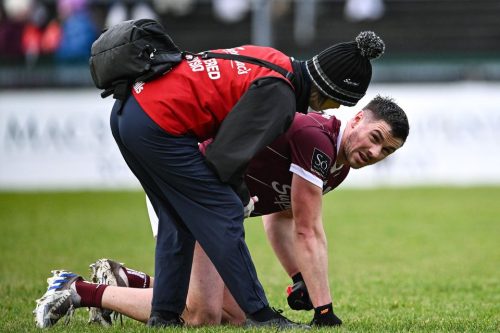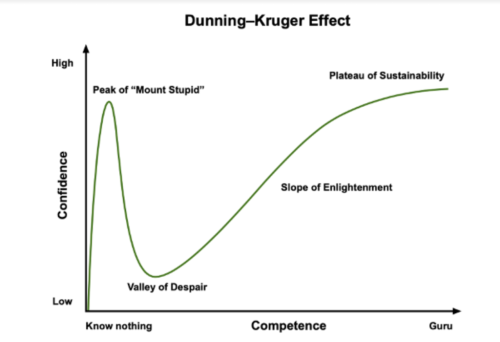
Kaizen in Everything. But Why?
“The only true test of intelligence is if you get what you want out of life.” – Naval Ravikant
It’s a tough thing to do.
But a necessary one if you are to improve in any endeavour.
Until you accept responsibility for your actions and the outcomes in your life, you will remain where you are. Stagnant, passive and not moving forward.
For sure, it is possible to go too far down the other side of the spectrum as well. Where you accept so much responsibility that you begin to blame yourself for things not turning out the way you’d like them to. There is incredible nuance to how the world and sport function. Ultimately there are things that are outside of our control. And we need to accept those things as they are. The only thing that we have control over and that we must accept responsibility for is our own effort. And our own efforts have a direct influence over the likelihood that things will turn out the way we want them to.
We can’t control whether these things happen or not. But what we can do is increase the chances that they will. And there’s one thing that’s definitely not likely to increase those chances and that’s apathy and passing blame.
I’ve been involved with many teams through the years and the three things that separate the successful from the unsuccessful is a willingness to
And the caveat to what I’ve outlined above is, I’d rather go too far down one side of the acceptance of responsibility spectrum than the other. I really don’t mind losing if I know that my team, my peers and I have all tried our complete best.

So, what does acceptance of responsibility look like to an athlete?
I definitely know what it doesn’t look like.
It doesn’t look like showing up late for training.
It doesn’t look like bringing the wrong gear because you failed to prepare last night.
It doesn’t look like not being engaged in training and not pushing yourself to get better at every possible moment.
It doesn’t look like skipping sessions and your physical preparation.
It doesn’t look like not hydrating effectively both pre and post session.
It doesn’t look like fueling your body like a child.
It doesn’t look like not doing everything within your power to enter game-day in the best possible frame of mind to execute both your own game and the team’s gameplan.
I think that by looking at what acceptance of responsibility doesn’t look like for an athlete, we get a pretty good picture of what we should be doing to give ourselves the best chance of achieving our goals on game-day.
However, acceptance of responsibility doesn’t just end when we enter the fray of competition. Within the game, we must also accept responsibility for our actions and for the impact that we can have on the team.
So, what does acceptance of responsibility look like on the field?
It looks like maintaining your cool in the heat of battle and not making any rash decisions that could cost your team.
It looks like communicating as effectively as possible with your teammates both during match-play and at breaks in play.
It looks like listening to your teammates and your coaches and responding to their instructions through positive actions.
It looks like putting yourself in a position to receive the ball and taking ownership of progressing play down the field.
It looks like making the run to create space for your teammate.
It looks like accepting that you may have to make many of these runs throughout the game without receiving the ball.
It looks like accepting that you don’t have to be the one to score and keeping your ego in check.
It looks like putting the team first, sometimes even above your own physical wellbeing. It looks like fighting to be the one to win the ball back and putting your body on the line to do so.
It looks like asking yourself consistently throughout the game, “Am I being effective here? Could I be more effective somewhere else?”
It looks like not taking the easy option and sitting back, waiting for someone else to take the game by the scruff of the neck.
Accept responsibility for the team’s performance. Take the game by the scruff of the neck. Take the shot that could win the game for your team. Make the unselfish run or unselfish pass that could make all the difference. Accept that each and every action is as important as the next. Do your absolute utmost to make the chance of winning as great as possible. And if you lose after doing that, you’ll know that you couldn’t have done any more.
“When you give total effort – everything you have – the score can never make you a loser. And when you do less, it can’t somehow magically turn you into a winner.” – John Wooden

“The only true test of intelligence is if you get what you want out of life.” – Naval Ravikant

So, we can see that when it comes to our training, a certain volume of work when paired with adequate recovery is positive for our development, but if that same intensity of work is mismanaged and spiked, then the same exercise intensity can be toxic to the athlete.

Unfortunately, it takes a fall from the peak of mount stupid, on top of the Dunning-Kruger curve, for many of these lessons to land home.
Here to help you achieve your health and performance goals.
At Petey Performance, I’ll assist you every step of the way. What’s stopping you?
Take ownership today.
© 2021 All Rights Reserved
Subscribe to Petey Performance and get updates on new posts plus more exlusive content.